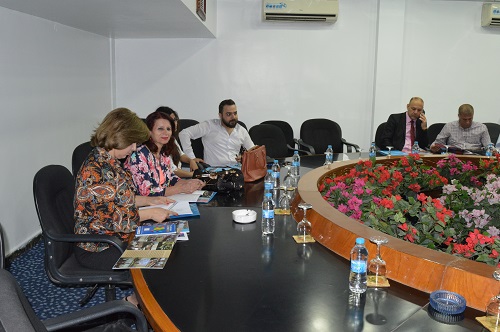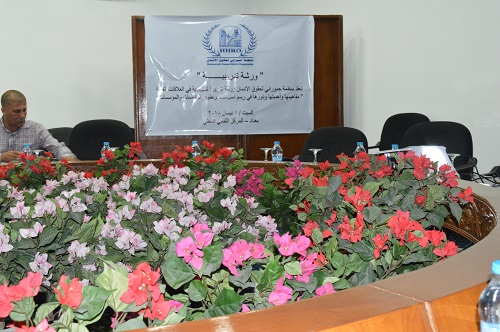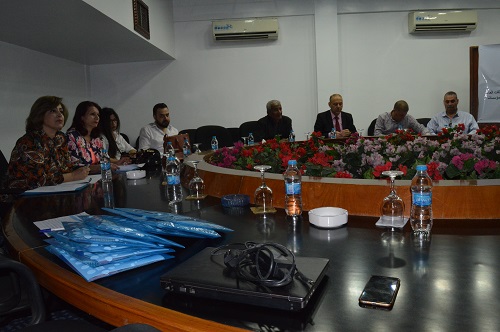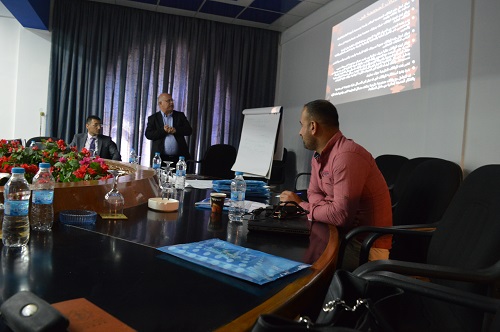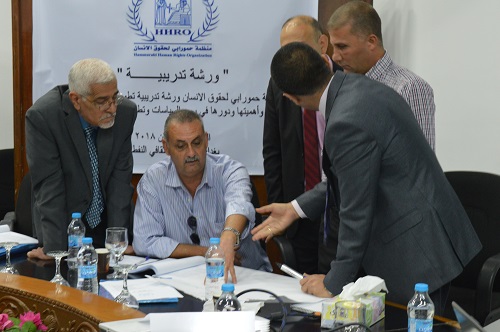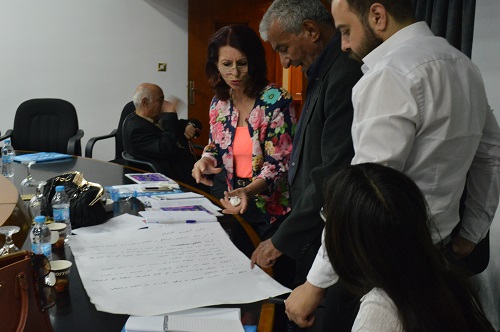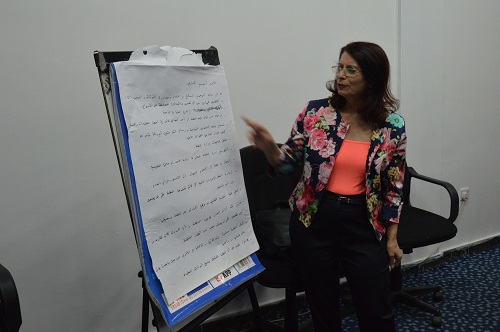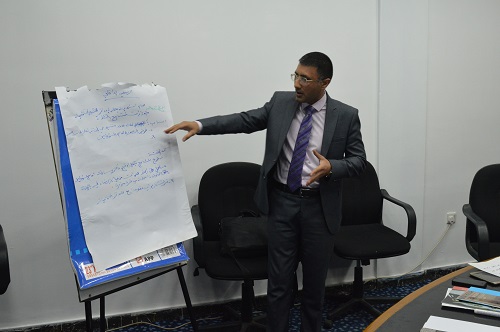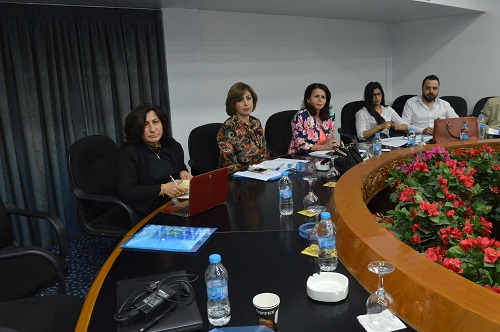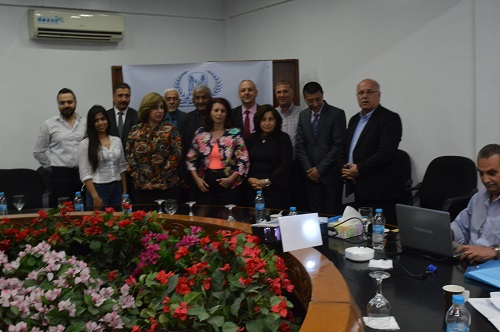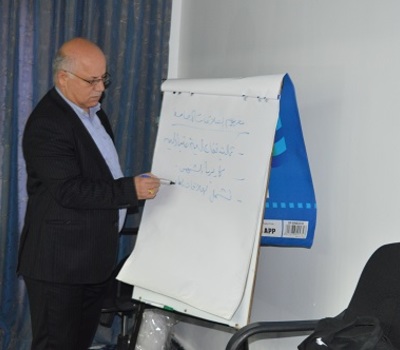- Hammurabi Human Rights Organization held a training workshop on public relations.
- Mr. William Warda lectures in the workshop discussing the concepts, foundations and characteristics of public relations and the officials who assume its function.
- Participants in the workshop are members of Hammurabi Human Rights Organization, its administrative staff and friends of the organization.
- Encountering a number of public relations principles and trends.
Hammurabi Human Rights Organization held on February 7th 2018 in Baghdad, a training developing workshop on public relations, its concepts, importance and role in policy-making and the development of organizations and institutions.
The workshop was attended by number of members of the General Board and administrative staff as well as friends of the organization.
Mr. Warda, delivered a lecture on the topic of public relations in several aspects, foremost definitions that dealt with the concept of public relations in the opinion of a number of experts and centers and institutions involved in this subject. Participants also involved in giving definitions.
For later he moved to the subject of the feasibility of public relations and the need for full support to continue in performing its mission and to win public support that need to strengthen relations with the organization establishing more convictions of the necessity of their presence and activities.
Mr. William Warda stopped at the nature of the relations and their purpose and the general importance of them. He also revealed part of his lecture to the differences between public relations and the publicity and advertising. He also touched upon the essence and functions of public relations and the importance of the correction function in the fields adopted.
Other issues addressed by Mr. William Warda included contingency planning, crisis and response rules, a review of the organization of public relations activities, the advantages of an organization within the organization for public relations and the presence of specialized agencies, the location of the public relations in the organizational structure of the organization and the precise competence of its own organ. This device has various aspects required to build trust and maintain it in meeting the requirements of the relationship.
Among other addresses explained by Mr. Warda are the basic tasks of the public relations to achieve the goals and carry out the job in a professional manner, as well as the pattern of organizing the public relations, and then the talk about the specialist of those relations and the lecturer on the subject of differentiation between the advantages of the existence of an organ within the organization for public relations, The essence of the relationship is that it has permanent relevance to the organization, while the advantages of the specialized agencies lie in the availability of expertise, skills and facilities. It is also in the same direction neutral bodies allowing to develop mechanisms of working that look at the work impartially.
The lecturer concluded his lecture subjecting on the characteristics of public relations officer, must have administrative experience and ability to set priorities, as well as analytical ability and decision-making in coordination and handling of communications and other activities, and the ability to oversee the development of a positive and renewed program of public relations to succeed in the tasks entrusted to him if there has been no overall successful management, and the Public Relations Officer must be able to organize conferences, seminars, workshops and dialogues as important means of promoting public relations.
Mr. William Warda adopted high quality participation methods using the deductive reasoning talk in raising a number of questions and asking the participants in the seminar to answer them, and conducting a test for the participants in the workshop through practical exercises.
